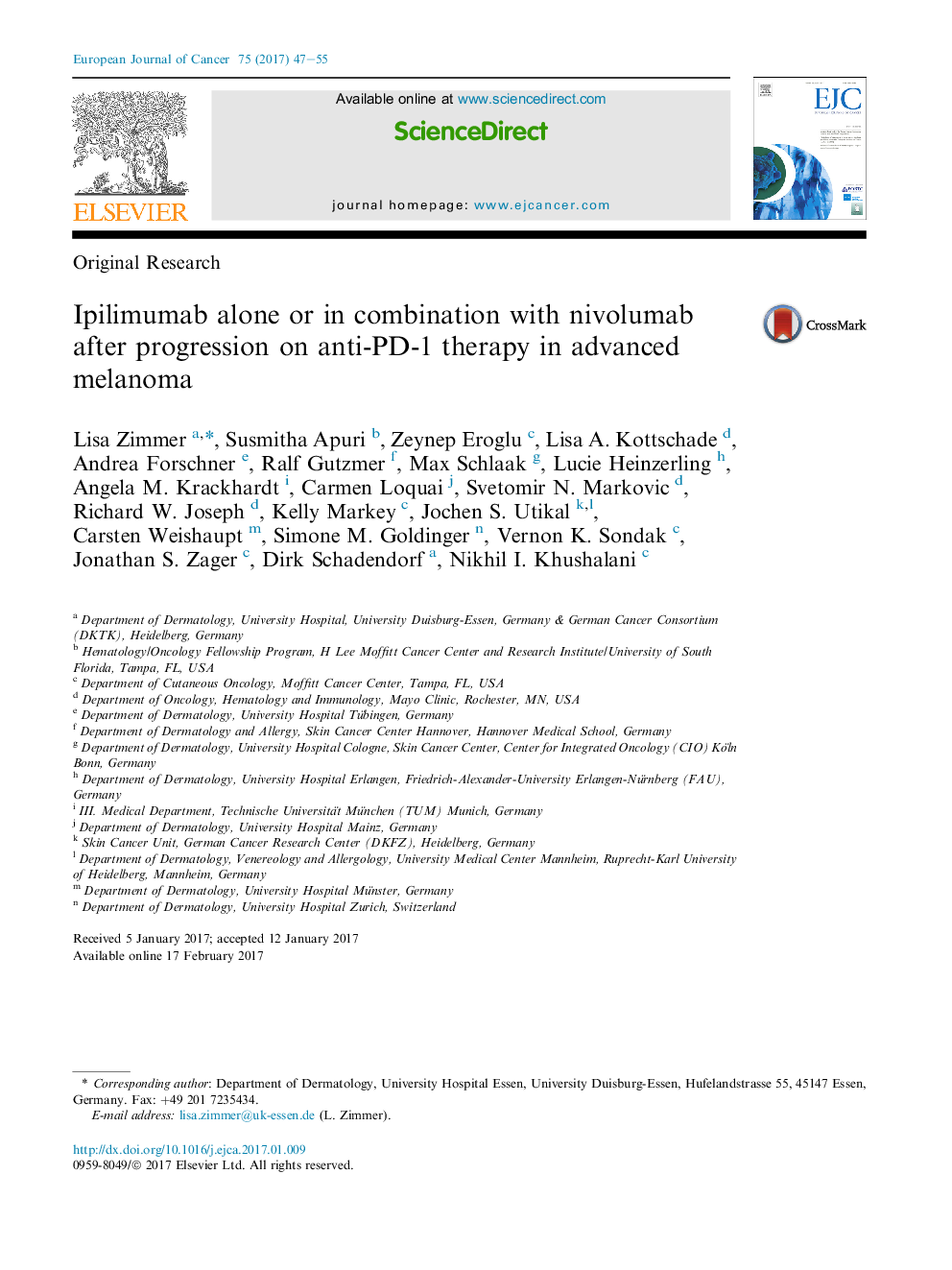| Article ID | Journal | Published Year | Pages | File Type |
|---|---|---|---|---|
| 5526255 | European Journal of Cancer | 2017 | 9 Pages |
â¢Ipilimumab after failure to anti-PD-1 therapy in melanoma elicits similar response rates as treatment-naïve patients.â¢Ipilimumab should be considered an appropriate option for patients who progressed on prior anti-PD-1 therapy.â¢Overall response rate of ipilimumab and nivolumab after failure to anti-PD-1 is lower compared to treatment-naïve patients.â¢Response to prior anti-PD-1 had no impact on subsequent response to ipilimumab or to its combination with nivolumab.
BackgroundThe anti-programmed cell death-1 (PD-1) inhibitors pembrolizumab and nivolumab alone or in combination with ipilimumab have shown improved objective response rates and progression-free survival compared to ipilimumab only in advanced melanoma patients. Anti-PD-1 therapy demonstrated nearly equal clinical efficacy in patients who had progressed after ipilimumab or were treatment-naïve. However, only limited evidence exists regarding the efficacy of ipilimumab alone or in combination with nivolumab after treatment failure to anti-PD-therapy.Patients and methodsA multicenter retrospective study in advanced melanoma patients who were treated with nivolumab (1 or 3 mg/kg) and ipilimumab (1 mg or 3 mg/kg) or ipilimumab (3 mg/kg) alone after treatment failure to anti-PD-1 therapy was performed. Patient, tumour, pre- and post-treatment characteristics were analysed.ResultsIn total, 47 patients were treated with ipilimumab (ipi-group) and 37 patients with ipilimumab and nivolumab (combination-group) after treatment failure to anti-PD-1 therapy. Overall response rates for the ipi- and the combination-group were 16% and 21%, respectively. Disease control rate was 42% for the ipi-group and 33% for the combination-group. One-year overall survival rates for the ipi- and the combination-group were 54% and 55%, respectively.ConclusionsIpilimumab should be considered as a viable treatment option for patients with failure to prior anti-PD-1 therapy, including those with progressive disease as best response to prior anti-PD-1. In contrast, the combination of ipilimumab and nivolumab appears significantly less effective in this setting compared to treatment-naïve patients.
